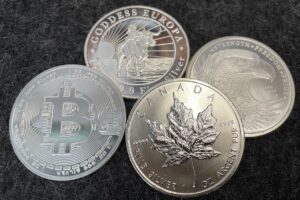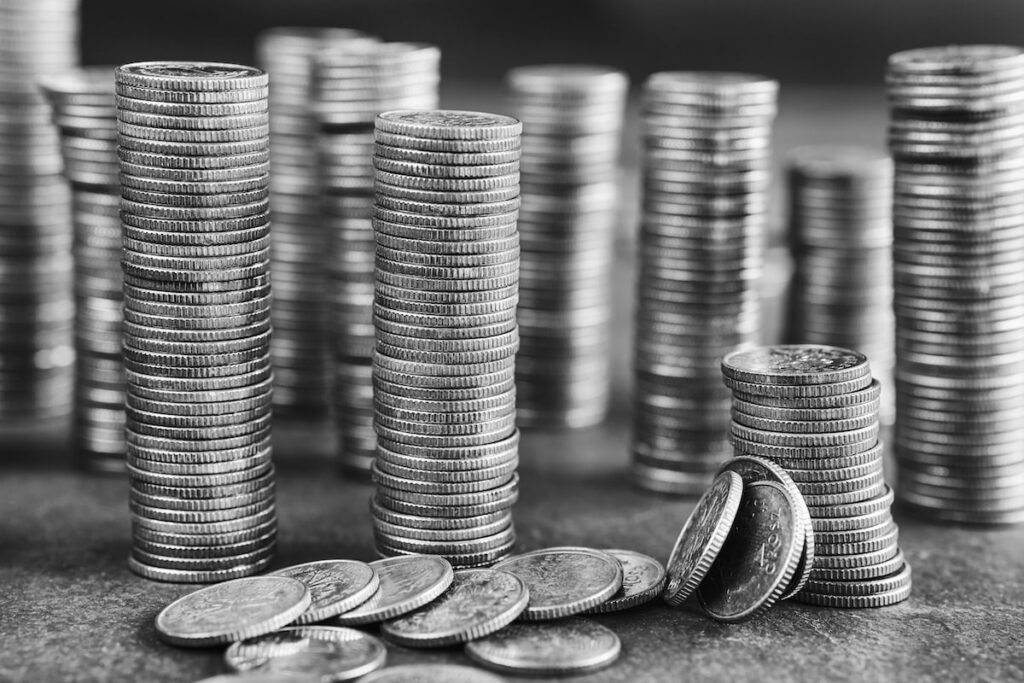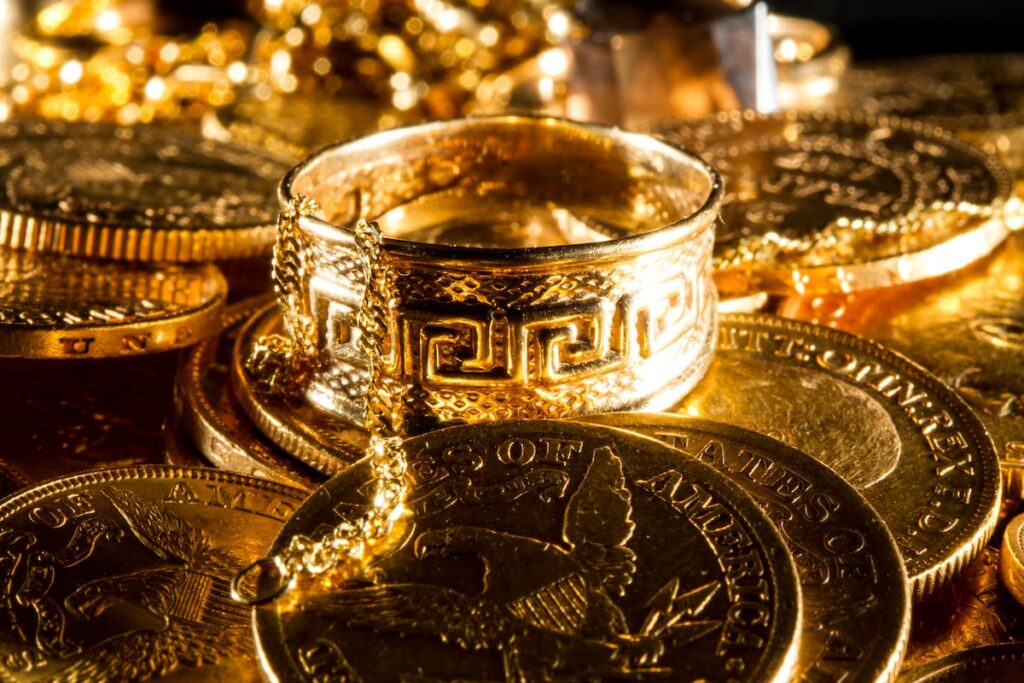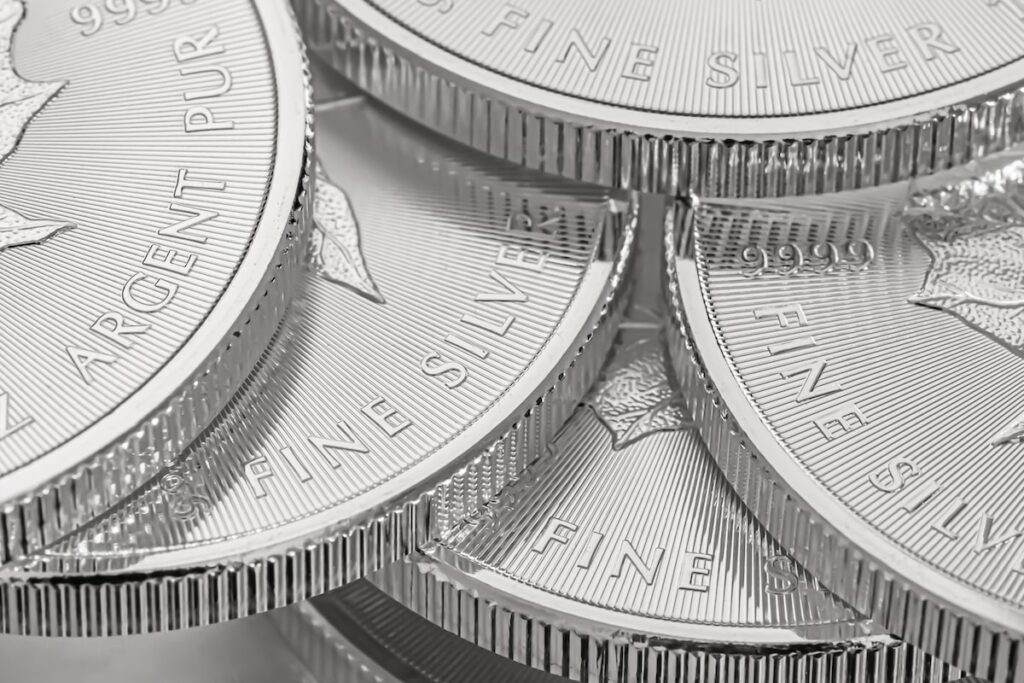If you are a first-time silver buyer like I was not too long ago, one of your greatest fears is probably buying fake silver.
Silver is an expensive asset, and spending any money on something that turns out to be fake can be a heartbreakingly bad investment.
There are several ways to determine if silver is fake:
In order to know if silver is fake, look for hallmarks and markings, carry out a magnet test, make sure you weigh the silver, double check the color, and use a silver testing kit.
To avoid purchasing fake silver, always buy silver from reputable dealers.
In this article, I’m going to explain the methods and means that I used to ensure that the goal that I purchase is real and not fake.
Let’s dive in.
Hallmarks & Markings
One method is to look for hallmarks or markings on the silver, which can indicate its purity and authenticity.
Genuine silver will typically have a hallmark or stamp that indicates its silver content.
Here are some examples depending on the type of silver you are purchasing:
| Type of Silver | Common Hallmark |
| Jewelry | 950, 925 |
| Bullion | 999, 9999 |
| Coins | 999, 9999 |
Genuine silver bullion will typically have a hallmark or stamp that indicates its silver content, such as “9999” for pure silver bullion.
If the silver does not have any markings or the markings appear to be fake, this could be a sign that the silver is not genuine.
Weight & Size
Another way to tell if silver is fake is to look at its weight and size.
Genuine silver is a dense metal, so if the silver feels lighter (or much heavier) than you would expect, it may be fake.
So be sure to weigh the silver you are purchasing to ensure it is not fake.
If you are purchasing a 1 troy oz silver bullion coin, you should definitely weigh and measure it to ensure it is the official size.
1 troy oz of silver should weigh 31.1 grams without packaging.
Here are common silver coins, their sizes, and weights:
| Coin Name | Diamater (mm) | Thickness (mm) | Weight (gr) |
| Silver Eagle | 40.6 | 2.98 | 31.103 |
| Silver Maple | 37.97 | 3.29 | 31.100 |
| Silver Britannia | 40 | 3.04 | 32.45 |
| Silver Krugerrand | 38.7 | 2.84 | 31.100 |
However, there often are consistencies in silver weights, so don’t be too surprised if the coin is a little bit overweight.
However, silver coins should not be underweight.
I’d be suspicious if that were the case.
Coins have different weights, like Silver Eagles which typically weigh 31.103 grams, versus Silver Britannias which typically weigh 32.45 grams.
So be sure to compare the correct coin’s weight and size.
However, gold is always exactly 1 troy ounce (bullion manufacturers do not want to lose any money on gold).
Simply use a small scale that can measure in troy ounces and ensure the silver is the weight it should be.
Verify the official measurements of the coin and use a ruler to measure the silver before purchasing.
Imperfections & Inconsistencies
Another way to tell if silver is fake is to look for imperfections or inconsistencies in the silver.
Genuine silver is typically a high-quality metal that is free of blemishes or flaws, so if the silver has scratches, dents, or other imperfections, it may be fake.
This method is not always reliable, as some fake silver may be made to look flawless.
However, sovereign coins, which are coins issued by a government, often have several security features to prevent counterfeiting.
These can include microprinting, holograms, and watermarks.
Some sovereign coins also have security features that are visible only under certain types of light, such as ultraviolet light, which makes them difficult to counterfeit.
Finally, many sovereign coins are also equipped with RFID chips or other technology that allows them to be authenticated quickly and easily.
So ensure the coin you are holding matches up with the security features provided by sovereign coins before buying.
Color
Another way to tell if silver is fake is to look at its color.
Genuine silver is a yellowish color, but fake silver may have a duller or more greenish hue.
You can also try to scratch the silver with a piece of glass or a knife.
Genuine silver will not scratch easily, but fake silver may scratch easily or show other signs of damage.
Magnet Test
Another method to test silver is to use a powerful magnet.
Genuine silver is not magnetic, so if the silver sticks to the magnet, it is likely not pure.
However, this method is not always reliable, as some fake silver may not be magnetic if the other metals are deep in the core (in a silver bar for example).
This is where using a strong neodymium test magnet to identify fake or plated silver may be appropriate.
Karameters
A karatmeter is a device used to measure the purity of silver.
It uses a process called spectroscopy to analyze the chemical composition of a silver sample and determine its karat value, which is a measure of the proportion of silver in the sample.
The karat value of silver is important because it determines the value of the silver.
Silver is typically mixed with other metals to make it more durable and easier to work with.
The higher the karat value, the purer the silver and the more valuable it is.
Using a karatmeter can help ensure that silver products are correctly labeled and accurately valued.
Karatmeter can be expensive to purchase and maintain, especially for small businesses or individuals.
While karatmeters are generally accurate, they may not always provide precise measurements.
The accuracy of a karatmeter can be affected by factors such as the size and shape of the sample, the quality of the instrument, and the skill of the operator.
Some karatmeter methods, such as acid testing, involve damaging or destroying a small part of the silver sample in order to analyze it. This can be a disadvantage if the silver piece is valuable or has sentimental value.
Overall, while karatmeters can be useful tools for determining the purity of silver, they may not be the best choice in every situation.
In some cases, alternative methods such as X-ray fluorescence or laser-induced breakdown spectroscopy may be more accurate or suitable for the task at hand.
Silver Test Kit
Another way to tell if silver is fake is to use a silver testing kit.
These kits are readily available and contain chemicals that can be used to test the silver’s purity.
It typically includes a set of chemicals and instructions for performing a simple chemical test on a sample of silver.
The result of the test can give an indication of the karat value of the silver, which is a measure of the proportion of silver in the sample.
This can be especially useful for buying or selling silver items or for appraising an estate.
Some silver test kits can be used to distinguish between real silver and other materials that are made to look like silver.
Silver test kits are generally inexpensive and easy to use, but they may not be as accurate as more sophisticated methods such as spectroscopy or X-ray fluorescence.
They may also be limited in the range of karat values they can detect or the types of silver samples they can test.
Simply follow the instructions provided with the kit to perform the test.
If the silver is genuine, the test will show a positive result.
Buy From Reputable Dealers
Avoid the problem of determining if silver is real altogether by buying from reputable dealers.
Do not buy silver from shady places like Alibaba or Craigslist, especially if you are just starting out.
My favorite places to buy silver are at my local bullion dealer, or online from reputable online dealers.
That way I don’t have to worry about knowing if silver is fake or not.
My local dealer buys directly from the bullion makers and can demonstrate the veracity of the silver using a powerful karameter.
Overall, there are several ways to determine if silver is fake, some more expensive than others.
It’s always a good idea to be cautious when buying silver and to carry out your own research to ensure that you are purchasing a genuine product.




